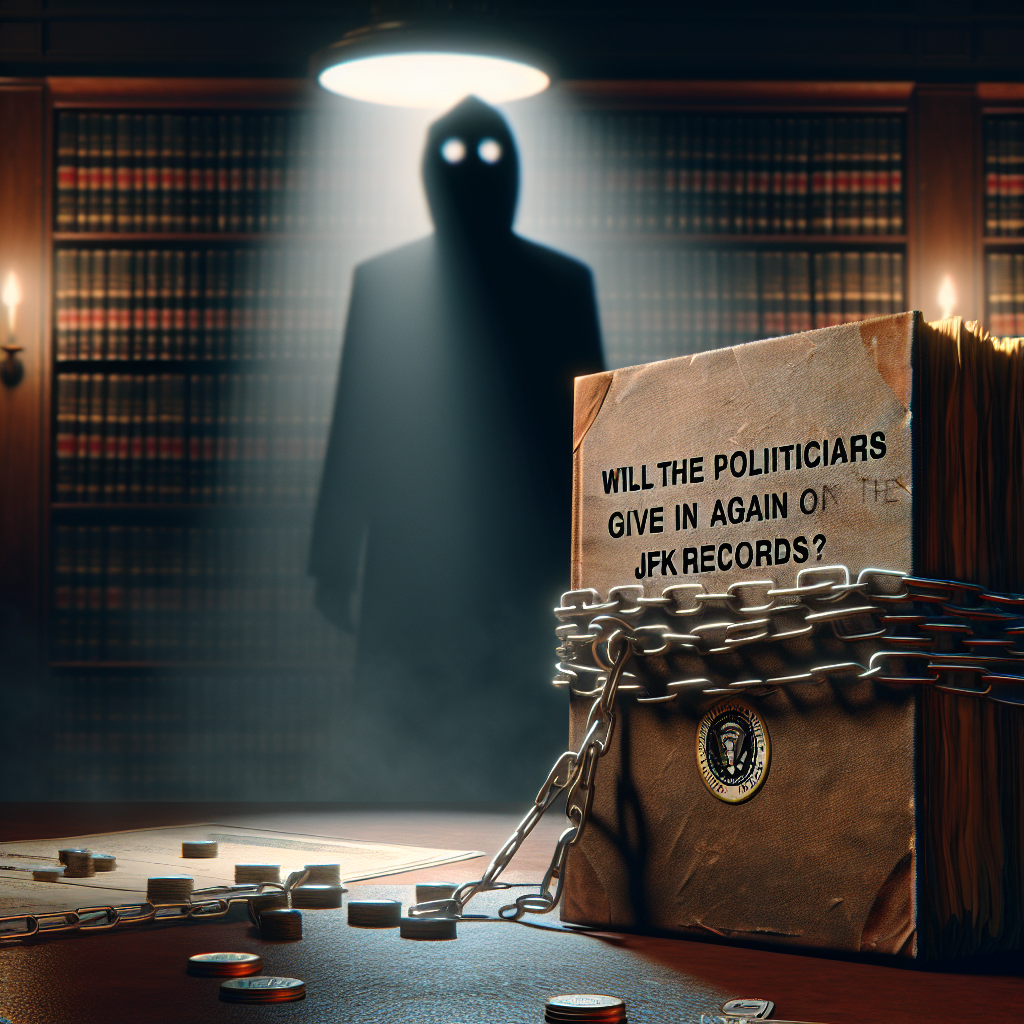A complex interplay between Donald Trump and the U.S. national-security establishment is unfolding regarding the long-withheld JFK assassination records, prominently protected by the CIA for over six decades. Trump’s campaign for the 2024 presidency includes a strong promise to finally release these secretive documents, a commitment he pronounced with urgency to Joe Rogan, insisting it would happen “immediately” upon his election. This situation raises questions about whether Trump can fulfill this vow or whether existing national-security constraints, primarily exerted by the CIA, will intervene once again.
The historical backdrop of the JFK Records Act, enacted in 1992, adds depth to this situation. The Act mandated the federal government to release documents pertaining to JFK’s assassination; however, it included provisions that allowed officials to justify withholding certain records if they deemed such actions essential for protecting national security. This loophole enabled agencies, chiefly the CIA, to continue withholding thousands of records, extending secrecy beyond the initial 30 years since the assassination. Trump, while initially promising compliance during his presidency, ultimately succumbed to CIA pressure just before the official deadline, allowing the continued concealment of many documents, a trend that persisted under the Biden administration, which opted for indefinite secrecy.
The CIA’s motives for maintaining the confidentiality of these records are likely rooted in the potential for incriminating information. While a direct confession of orchestration of JFK’s assassination seems implausible—given the agency’s practice of avoiding written acknowledgment of state-sponsored actions—there is a strong belief among assassination researchers that the remaining records contain substantial circumstantial evidence that could suggest conspiratorial activities by the national-security establishment. The CIA’s reluctance to release these documents reflects its concerns about public perception and ongoing accusations of a cover-up, thereby illustrating the high stakes involved in protecting these secrets.
For those familiar with the inner workings of the U.S. government, particularly the complex relationship between civilian entities and national-security apparatus, it is crucial to acknowledge that the true dynamics of power may not align with traditional understandings. The U.S. government, particularly since the late 1940s, has increasingly been influenced and often dominated by the national-security sector, comprising bodies like the Pentagon and CIA. This shift complicates the public narrative of civilian supremacy over military influence, instead illuminating a situation resembling governments in other nations where military interests often dictate terms. The notion that elected officials genuinely oversee these agencies is called into question, as historical instances demonstrate that the national-security establishment has effectively maneuvered around traditional checks and balances.
Given the context provided by these three interrelated factors—Trump’s campaign promises, the CIA’s long-standing aversion to releasing the files, and the overarching dominance of national-security interests in government—speculation about future outcomes is rife. If Trump is indeed serious about opening the records, he would face immense pressure from the CIA and potentially have to confront the reality of being unable to act freely as the executive leader. Conversely, the CIA may prefer to permit a controlled release of some documents to maintain the illusion of transparency while still concealing the more sensitive data that could damage its reputation or reveal operational misdeeds.
Looking ahead, my prediction is that Trump will ultimately find himself caving to the CIA’s directives, similar to his previous tenure as president. He will likely invoke “national security” concerns to justify releasing only superficial or irrelevant records, maintaining the cloak of secrecy around the most potentially damaging files. This scenario would not only perpetuate the secrecy surrounding the JFK assassination records but would also solidify the perception that the national-security apparatus wields greater power than elected officials, advancing the narrative proposed by scholars like Michael J. Glennon regarding the dominance of a national-security state over traditional governmental authority structures. The implications of this continued secrecy resonate deeply within American political discourse, highlighting the tensions between public accountability and national security interests.

